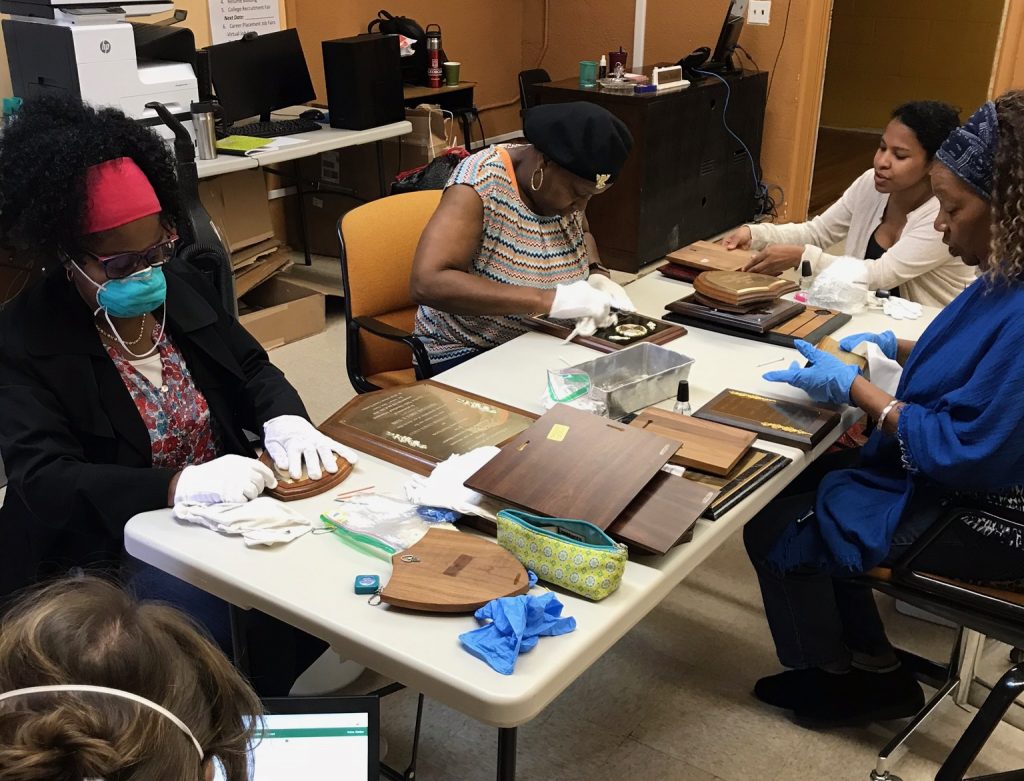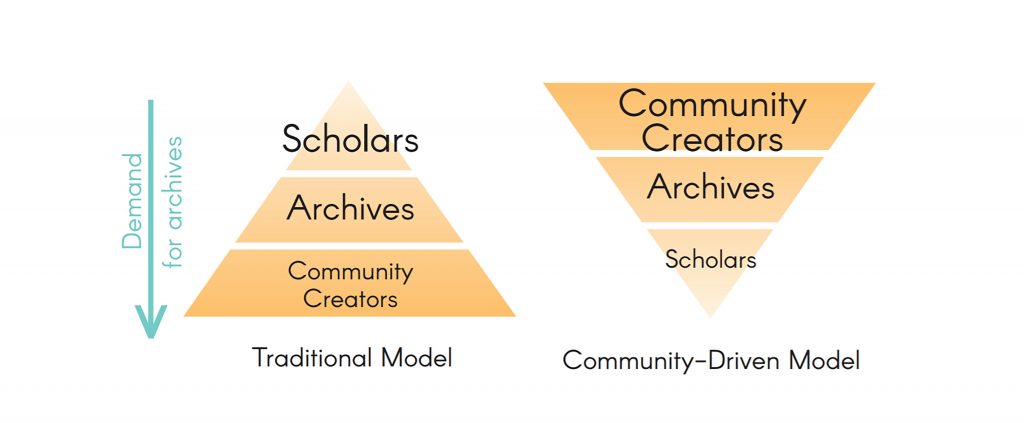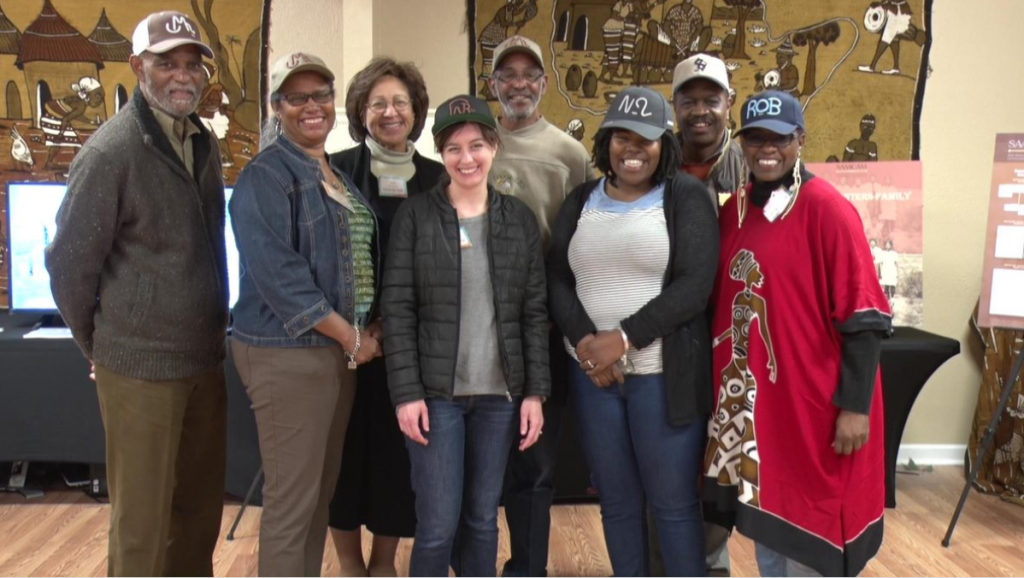Community-Driven Archives Overview
“Great libraries build communities.” —R. David Lankes, Director, School of Library and Information Science, University of South Carolina
The Southern Historical Collection’s Community-Driven Archives project supports historically underrepresented history keepers in telling, sharing, and preserving their stories.
Why Community-Driven Archives?
“People are trapped in history and history is trapped in them.” —James Baldwin
Archives contain gaps and silences.
Mainstream histories often exclude oppressed people and those without the resources to steward a written record. Their histories have been absent from the archive.
Most institutional archives collect historical materials through a top-down model, where curators decide whose history matters and why. Everyday people have limited or no control over what stories get shared and documented.
Some people donate materials to institutional archives and come to feel that their donation benefits the institution and academic researchers more than those in their own community. They have lost trust.
We are responding to calls for change.
Increasingly, community groups and changemakers are calling on archival institutions like Wilson Special Collections Library and our funders to respond directly to damage done through archival gaps and silences.
At the Southern Historical Collection, we are rethinking archives, from top-down collecting to the custodial model of housing communities’ materials at our institution.
What is the Community-Driven Archives Project?
Local history keepers steward stories and historical materials and help make them available to current and future generations.
Since April 2017, through the support of the Andrew W. Mellon Foundation, our Community-Driven Archives Team (CDAT) has built and sustained meaningful partnerships with history keepers throughout the South.

Local HBTSA leaders organizing museum collections with CDAT staff on their visit to Hobson City, AL.
We are proposing a new path forward for archives.
Project goals
- Provide marginalized communities with tools and resources to sustainably safeguard and represent their own histories
- Amplify the work of existing community-driven archives projects through support with communications, programs, events, and exhibits
- Make trainings and tools available for individual leaders and groups to start and advance new community-driven archives projects of their own
- Create a replicable, social justice-based model for community-driven archives projects based on institutional collaboration
- Reach new audiences and connect broad communities of learners and history keepers with the community-driven archives model
- Deepen institutional dialogues on and approaches to community collaboration and the post-custodial archive
Our partners
- Appalachian Student Health Coalition (ASHC)
- Eastern Kentucky African American Migration Project (EKAAMP)
- Historic Black Towns and Settlements Alliance (HBTSA)
- San Antonio African American Community Archive and Museum (SAAACAM)
Guiding Principles
- We center the needs of a diverse set of communities by listening carefully to local leaders and supporting local history keepers. Engaged communities build more representative archives and historical narratives.
- We demystify institutional archives and support history keepers to steward their own collections and interpret their own histories.
- We directly support and resource the work of our partners. These groups preserve and share underrepresented stories and empower communities as curators.
- We act as a home base for history keepers to share archival and interpretive approaches that range from easy to complex and from affordable to high-budget.
Our Team
- María Estorino, Principal Investigator
- Biff Hollingsworth, Co-Investigator
- Chaitra Powell, Project Director
- Sonoe Nakasone, Community Archivist
- Kimber Heinz, Outreach Coordinator
- Alex Paz Cody, Graduate Research Assistant
- Lidia Jo Morris, Graduate Research Assistant
Past Team Members
- Bryan Giemza, Principal Investigator
- Josephine McRobbie, Community Archivist
- Bernetiae Reed, Project Documentarian and Oral Historian
- Eldrin Deas, Graduate Research Assistant
- Claire Du Laney, Graduate Research Assistant
- Brenna Edwards, Graduate Research Assistant
- Leah Epting, Graduate Research Assistant
- Lucas Kelley, Graduate Research Assistant
- Lindsay Terrell, Graduate Research Assistant
- Marisa Tomzak, Graduate Research Assistant
Contact Us
Email Us
Call Us
Street Address
Chapel Hill, NC 27515
Mailing Address
CB# 3948
Chapel Hill, NC 27515-8890





